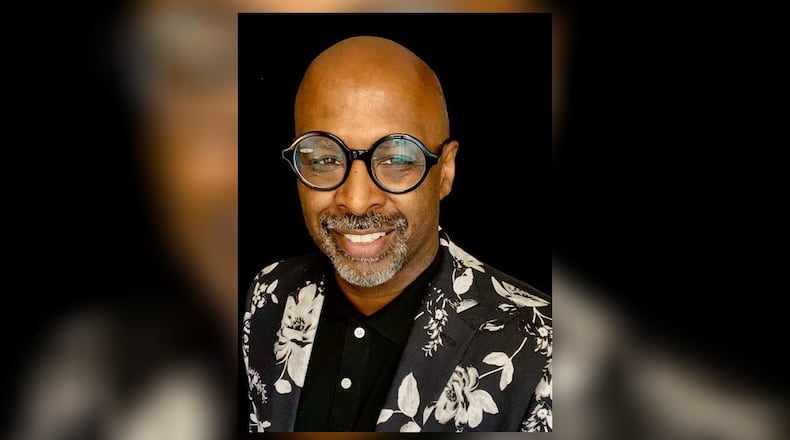As a very young boy, I saw the Apollo space missions and a lunar landing. We were breaking free of the bounds of this earth and, subsequently, the restrictive, corrosive effects of bigotry and bias. We would later learn that none of this forward momentum would have occurred if not for the analytical genius of Katherine Johnson, Dorothy Vaughan, and Mary Jackson, among a brilliant team of mathematicians who did the calculations for the first John Glenn orbital mission and subsequent re-entry into our atmosphere with his spacecraft.
I watched reruns of Star Trek and saw Lt. Uhura, played by the fabulous Nichelle Nichols, in all of her groundbreaking glory on the original Star Trek television series. I spent my childhood reading the writings of Ray Bradbury, Isaac Asimov, and Arthur C. Clarke and collecting the Marvel Comic book series The Black Panther and X-Men. I spent Saturday afternoons watching Space: 1999 and Doctor Who and being gifted with an upbringing centered in imagination, hard work, and creativity which would ultimately inspire my journey.
The parents of our generation paved the way through their own hard work and sacrifice for us to pursue a future filled with possibilities. As the golden glow of childhood faded, the curiosity and idealism of the future never diminished. It evolved into the writings of James Baldwin and Langston Hughes, the films of Spike Lee and Julie Dash, ‘She’s Gotta Have It’, and ‘Daughters of the Dust’, and the pursuit of degrees in Visual Arts and Political Science at Eastern Michigan University.
I spent a semester studying abroad at Bulmershe College in Reading, England, and met students of color from the Caribbean nations and the countries of Ghana, Nigeria, and Kenya. I developed a larger view of the world, one in which the descendants of the colonized spoke in the accents of Masterpiece Theatre.
I discovered an aptitude for dance and eventually pursued a Master’s degree in Dance from Ohio State University, immersing myself in a post-modern dance world where Bebe Miller and Bill T. Jones redefined the movement vocabulary of generations of dancers and choreographers.
A life that, over time, was colored by the soundtrack of hip-hop, rhythm and blues, funk and jazz. A soulful mixture of Miles Davis, John Coltrane, Run DMC, Stevie Wonder, and Heatwave signaled a seismic shift in popular music. This soundtrack of Blackness led to the ultimate power couple of Jay-Z and Beyoncé dominating charts across the globe.
I have been witness to the visual artistry of Mark Bradford, Kara Walker, Kehinde Wiley, and Amy Sherald, demanding that the museum gates be flung open to accommodate the genius of Black creativity.
We are speaking loudly and with pride from our African roots for all the world to witness and discover.
While Afrofuturism is rooted in an optimistic stance intellectually, we have to be realistic about using it as a tool for advancement. Like all great science fiction about advancement, we must be aware of the dystopian, alternative narratives that bigotry and fear use to feed their own monstrous manifestations and infiltrate a society, such as William Pierce’s Turner Diaries.
As I stand at this crossroad, I have to acknowledge the power of forward momentum in shaping my artistic and creative path as a Black man in a world in which — all too often — my talent, intellect, and cultural connoisseurship can and have been challenged, dismissed and ignored. Keeping the corrosive effects of bigotry at bay, all while maintaining a hopeful posture that embraces one’s culture can, as every Black creative knows, leave us tired and optimistic at the same time.
We as a society have the imagination to end the cycles of ignorance, fear, and bigotry. As a society, if we can genuinely embrace the alternative and let our Black creatives fully manifest their powers, a true revolution can begin. Then, this life’s work will have been worth it.
Because I won’t stop. The future awaits.
Rodney Veal is an artist, choreographer and host of ThinkTV and CET CONNECT, The Art Show. He contributes a monthly arts column for Ideas & Voices.
Afrofuturism and Dayton, Ohio

Krista Franklin: "Transatlantic Turntable-ism." Collage on canvas. 2005.
"Afrofuturism demands society look beyond the present into worlds yet explored, where the fullness of Blackness blooms without limitation." - Read Russell Florence's story about Dayton's many connections to Afrofuturism. Throughout February, Ideas & Voices will feature artists and others to discuss our region’s contributions to Afrofuturism. You are invited to follow along.
|
Rickey Vincent: Dayton musicians did not engage in Black music traditions — they broke them |
|
Countess Winfrey: I challenge myself to create a new world, rather than shine light on the world we already live in |
|
Shon Curtis: Afrofuturism and the rebirth of artistic identity |
|
Leroy Bean: Valuing Black creativity: Addressing systemic bias in the arts |
|
Rodney Veal: ‘We are speaking loudly and with pride from our African roots’ |
|
Mariah Johnson: Libraries and artists in our community are the agents of change |
About the Author

